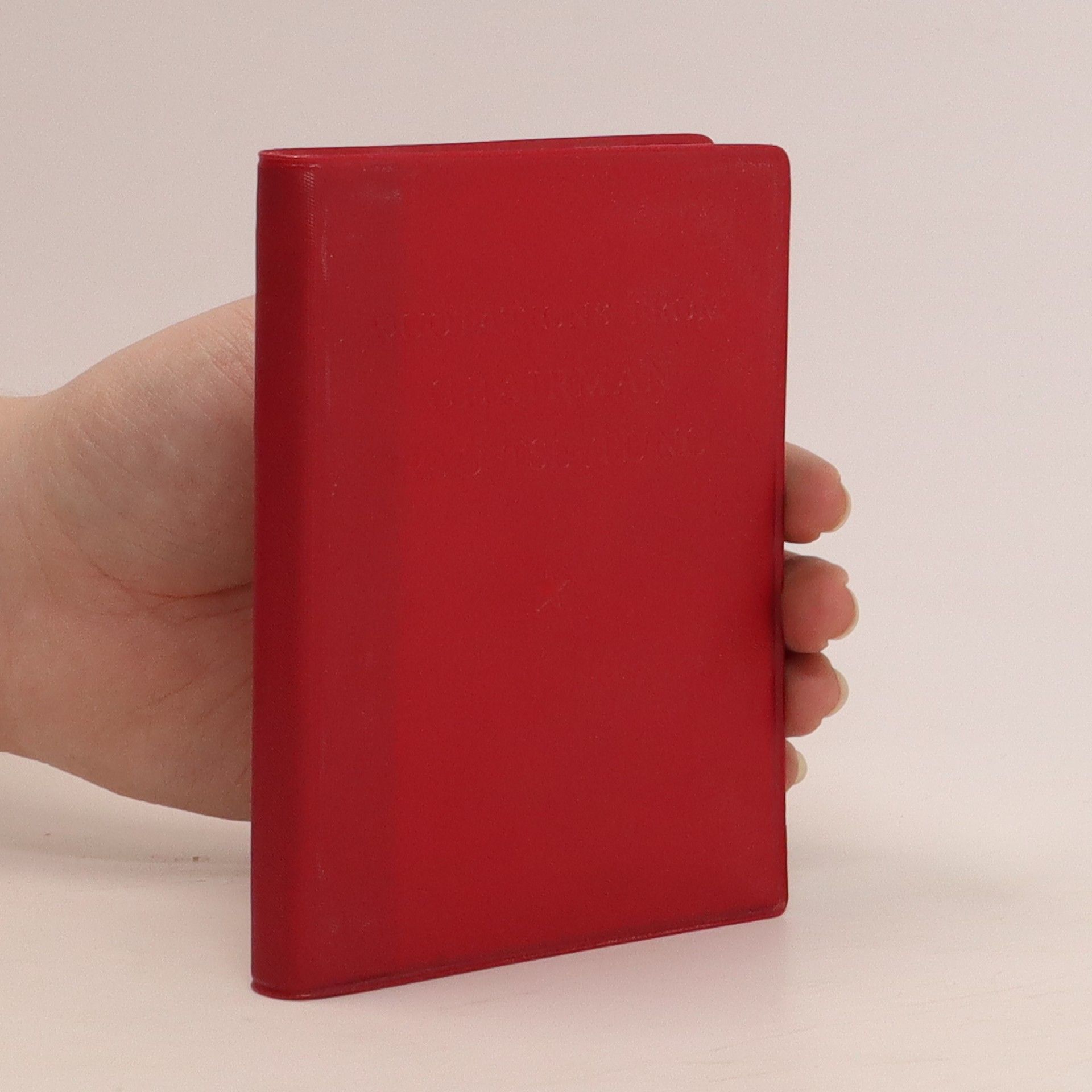On Practice and Contradiction
- 199 pages
- 7 hours of reading
The writings that underpinned the Chinese revolution, introduced by Slavoj Zizek.
Mao Zedong was a pivotal figure in the Chinese Revolution and the founding father of the People's Republic of China. His political and military strategies, collectively known as Maoism, profoundly shaped modern Chinese history. While recognized for his strategic acumen and theoretical contributions, his campaigns remain controversial and led to immense societal upheaval and significant human cost. His legacy continues to be a subject of intense debate and reinterpretation.






The writings that underpinned the Chinese revolution, introduced by Slavoj Zizek.
The first documented, systematic study of guerrilla warfare, Mao Tsetung's 1937 text remains the definitive guide to orchestrating revolution in developing countries. Based on Mao's own experiences in fighting Chiang Kai-shek's Nationalists and his interpretations of the classic strategies of Sun-tzu, On Guerrilla Warfare outlines the tactics that have proven effective around the world, from Vietnamese jungles to Middle Eastern deserts.Prescient in his thinking and concise in his expression, Mao conceived of guerrilla operations as a complement to traditional warfare. He explains why guerrilla activities should be integrated into conventional military procedures and discusses the organization and operation of guerrilla units. His unorthodox strategies transform disadvantages into benefits: using retreat as an offensive maneuver; indoctrinating locals for employment as spies; and compensating for lack of firepower with speed, surprise, and initiative.Translator Samuel B. Griffith provides a comprehensive introduction in which he profiles Mao, examines the nature and conduct of guerrilla warfare, and considers the implications of such warfare for American policy.
One of the most famous books of all time, these quotations from the writings and speeches of the father of Chinese Communism constitute a rare and penetrating insight into the philosophic thought of one of the most hated and revered men ever to have lived. Note: Publication of this document does not constitute an endorsement by the publisher of any or all of its contents. It is presented here in the interest of historical and intellectual inquiry.
Quotations from Chairman Mao Tse-tung is a book of statements from speeches and writings by Mao Zedong (formerly romanized as Mao Tse-tung), the former Chairman of the Chinese Communist Party, published from 1964 to about 1976 and widely distributed during the Cultural Revolution.The most popular versions were printed in small sizes that could be easily carried and were bound in bright red covers, thus commonly becoming known internationally as the Little Red Book.